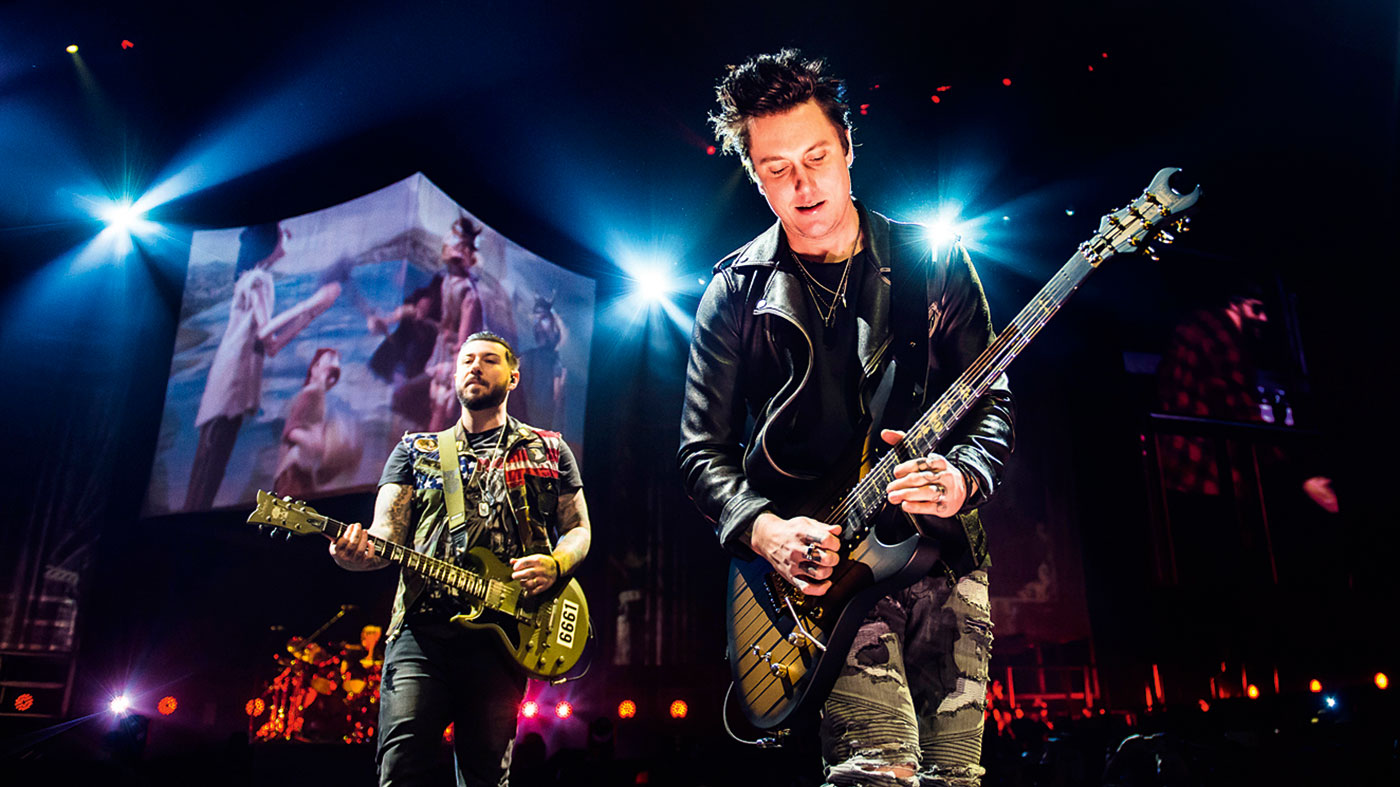Avenged Sevenfold's Synyster Gates on contemporary guitar music: "When I check in I don't see anything where I'm going, 'I'm missing out on this piece of technical wizardry'"

Even after Avenged Sevenfold hit platinum success, Synyster Gates was pushing himself as a guitar player harder than many would imagine. "When I was 30 I picked up a gypsy jazz guitar and I didn't put it down," he told Minneapolis-based 93X Radio host Pablo in a new interview you can watch below.
"I had people around me that said, 'Well why don't you put that much time into electric guitar?' And I [responded] that this was going to inform my electric guitar [playing]," Gates continued. "And I was somewhat right, and they were right as well. Four years after that, when I was 34, I went f*****g beserk and downloaded, absorbed, just consumed mass amounts of guitar nerd content. I did that for a few years there where I had a guitar in hand, even when I was on the road, from the minute I woke up until I went to the show and went to bed."
I'm not seeing that, and it could change but I'm really into tone and textures and songwriting. That's where I've really spent most of my time
Gates added that the intense experience of reinvesting in his learning informed the decision to found his own online guitar school. But when Gates says he went deep as a guitar player in these years, he means it. But he also saw the bigger picture of song context too.
"I went down gnarly rabbit holes online, just trying to get my hands on every piece of technique, every piece of theory, every piece of songwriting – it was always very much from songwriting," he explained. It was very important to me; what were The Beatles doing and why was their harmony so complex? [while using simple topline melodies too].
"So I needed to understand that, then understand the complex over the complex." That quest brought Gates to the classical masters including Stravinsky and Chopin. "I didn't stop playing guitar for three years," he added.
But since that time it seems he's not been wowed by contemporary technical guitarists. "Since that time I check in, and it's not like I can play all this [modern] stuff, I'm not saying I'm technically as good as so-and-so… but when I check in I don't see anything [where] I'm going, 'I'm missing out on this piece of technical wizardry.' I'm not seeing that, and it could change but I'm really into tone and textures and songwriting. That's where I've really spent most of my time. Studying greats like Kanye, The Beatles, Elton John, even old school [Dr] Dre stuff that actually has guitars in there and communicates well to a guitar player."
Want all the hottest music and gear news, reviews, deals, features and more, direct to your inbox? Sign up here.
Undoubtedly the sound would be much different – we would probably just be softcore rock band
This year will also see Synyster Gates mark his 20-year anniversary as a Schecter guitars artist. But it could have been different – he nearly played a Gibson.
"When we recorded our first music video for Unholy Confessions they gave me a LEs Paul on loan – I was trying ton get signed by [Gibson], Gates remembered in the interview same. "And they wanted wanted the guitar back. Nah… it was in a music video and I'm not giving it back and I'm not paying full price for this thing. So I kept it. And because of that I wasn't signed by [Gibson]."
Then Schecter came calling. And Gates mused how a Les Paul may have influenced the band's sound after that if that hadn't happened. "It just forces you to play different," he noted. "I need the two extra frets and they don't always come equipped with the Les Paul. I need a whammy bar, although you can do it [on a Les Paul], I don't know how great it is. As far as Floyd Rose tremolo stuff goes you can throw [my Schecter] all over the place and it stays in tune. Undoubtedly the sound would be much different – we would probably just be softcore rock band," he concluded of a hypothetical Gibson-fuelled career.
Find out more about the Synyster Gates guitar school at synner.com

Rob is the Reviews Editor for GuitarWorld.com and MusicRadar guitars, so spends most of his waking hours (and beyond) thinking about and trying the latest gear while making sure our reviews team is giving you thorough and honest tests of it. He's worked for guitar mags and sites as a writer and editor for nearly 20 years but still winces at the thought of restringing anything with a Floyd Rose.